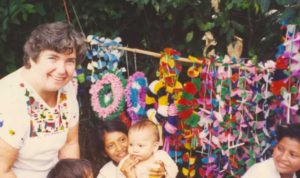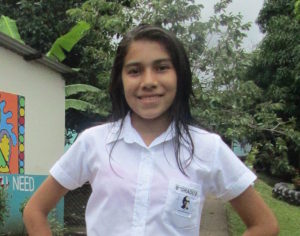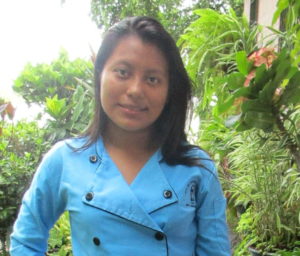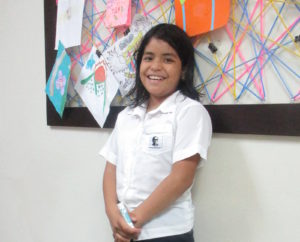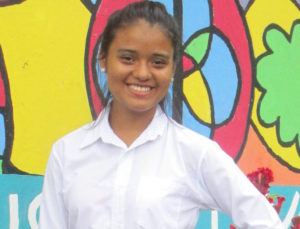The banners on several online Salvadoran newspapers have recently proclaimed that it is the “25th Anniversary of the Peace Accords”. In an act of national reflection, online papers have begun to dedicate space to a societal discussion of what has changed in El Salvador since the Peace Treaty. Surprisingly, most of the discussion refers to societal disenchantment, fear and sorrow. But, the story is never as dark as it may seem. Quietly, without praise or recognition, hundreds of people working in parishes across El Salvador, continue to plant the seeds of hope. COAR is so proud to be one of those seeds.
A quick primer: On January 16th, 1992, in Chapultepec Castle, Mexico City, the Peace Accords between the Salvador Government and the FMLN Rebels was signed. The Peace Process began in 1990 after 11 years of extreme violence mostly committed by the Salvadoran military or paramilitary actors. Although most of the violence occurred in the mountains and rural areas, even myopic capitalinos could not hide their eyes from the horrible violence that saw the assassination of so many priests and religious. While there are too many victims to name, has there ever been any other recent military conflict that so decimated the Catholic Church that the world knows the names of the victims: Fr Rutilio Grande, Archbishop Oscar Romero; Sister Dorothy Kazel, Sister Ita Ford, Sister Maura Clarke and layworker Jean Donovan; or have we ever seen the execution and mutilation of 6 Jesuit college professors on the grounds of their own university (Catholic University of the Americas)? Salvadoran society is reflecting in this anniversary year on how far it has come (or not come) since experiencing the hope born out of the Peace Accords.
There was great hope following the Peace Accords. For women, their place in society was to improve. Women served in the FMLN shoulder to shoulder with their male counterparts. Surely, the Peace Accords would continue this movement of feminist equality. Economic reform? Certainly, after 11 years of carnage, the calls for land reform and improved living conditions for the poor would be addressed. Greater public involvement in civic life would improve government. And, the violence, fear and oppression during the war would fade and create new opportunity, growth and prosperity for all.
But, Salvadoran author Vladimir Amaya writes of the “collective paranoia” in today’s society among a generation of people who see violence daily – driven not by left/right ideology but by a society that inherited a country filled with injustice, with no real legal system to address the problems, and which sees violence growing from corruption and the growth of gangs. His most heart wrenching comment reads “Young people have nothing to believe in” and that “it is not the same thing for authors to write about [Salvadoran] disenchantment when for many there never was any hope to begin with”.
For this generation born out of the chaos of war, from where would a sense of hope come? The answer: the Catholic Church and non-governmental organizations like COAR, Catholic Relief Services, the Red Cross, etc.
Today, COAR is not just feeding and housing abused and abandoned children. We are teaching the next generation to build bonds of trust: trust in adults (their housemothers, their teachers), trust in each other, and trust in the system. We are not asking the kids to ‘get over’ their past abuse, but rather, work in the Therapy Center to understand their unique personal history and learn positive skills to overcome and more forward. And, the school is working harder than ever to connect the classroom to a future career path. Now, the children choose 1 of 4 high school tracks that prepare them for a possible job in health care, hotel & tourism, office & secretarial skills or general education. Additionally, for those few truly self-motivated, they spend 2 years interning in a local hotel – working side by side with full time employees, learning the practical skills that are required and more importantly, learning how to work well with others, handling conflict on the job, and the importance of showing up on time.
And, COAR joins our partners in the Archdiocese who are reaching out to the young – those who were born in a state of hopelessness – to show them that the future can be bright and that they do have the power to shape their own destiny.
Through its own Archdiocesan programs, the parishes are making a difference. The process begins by asking the whole family to participate in the process. It is not enough to train the child when he may return to an abusive or dysfunctional home. The Church is working with families – even among illiterate parents – to support their children even if they lack the skills to directly aid them.
Teens and young adults meet with volunteers who work with them on conflict management, interpersonal and communication skills, and the need for perseverance and self-discipline. And, after the appropriate academic training, they are asked to make a real business plan. Upon the successful completion of the plan, they are given microloans which allow them to actually open a small business.
For those whose personality is less entrepreneurial, the Archdiocese has created an official outreach program to the business community. Many business would love to hire a young person but, in a country at war with the gangs, how do you trust the unknown or a young man who lives in a gang infested neighborhood? The answer: for those young people who complete the Archdiocesan program, the Archdiocese will vouch for the character, preparation and skills of their candidates. With this assurance, local business happily hire these young people and report that they are very pleased with their performance.
In 1980, Archbishop Romero stood against oppression and against despair calling for Peace, Justice and hope. In the same year, four North American Churchwomen refused to leave El Salvador in spite of their family’s fear and the daily violence. They believed in God and in their service to the women and children. In 1988, Jesuit college professors did what they could to write and to speak about the war and injustice. In the darkest days of despair, there was hope and there was light. The Church (both Institution and the People) has been there in El Salvador – bringing hope and light – and it continues to lead the way today.
For us here at COAR, it is the ceaseless love, humility and service that Sister Sheila Marie has shown the Salvadoran people that inspires us to this calling. She was there on the ground in El Salvador in the 1990s and she is here with us (on the Board) still today keeping hope alive. To Sheila, every day is a new day and a chance for a better and more just world. 25 years after the picture above was taken, El Salvador may still find itself confronting poverty, injustice and violence. But, like so many in the Church, as long as there is love in one’s heart, there is always hope for a better tomorrow.
Sister Sheila Marie at COAR during the Peace Accords and COAR’s faces of hope today…

